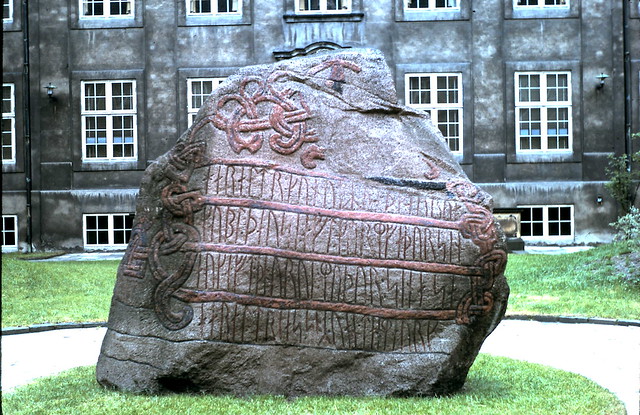Podcast: Play in new window | Download
Today we’re looking into the origins of the word champion.
A champion [ˈtʃæmpiən] is:
- An ongoing winner in a game or contest.
- Someone who is chosen to represent a group of people in a contest.
- Someone who fights for a cause or status.
- Someone who fights on another’s behalf.
It comes from Middle English champioun [tʃampiˈuːn] (martial artist, soldier, guardian, promoter, winner), from Old French champion [ʃɑ̃.pjɔ̃] (champion), from Late Latin campiō(nem) (champion, fighter), from Frankish *kampijō (fighter), from Latin campus (flat level ground, plain, field), from Proto-West Germanic *kampijan (to battle, campaign), from *kamp (battle(field)) from PIE *kh₂emp- (to bend, curve) [source].
English words from the same Latin root include campus, camp, campaign and champagne [source].
The word cam/kamm (crooked, bent, false), which found in all the modern Celtic languages, comes from the same PIE root via Proto-Celtic *kambos (twisted, crooked, bent) [source].
Words from the same Proto-Celtic root include the obsolete English words kam (crooked, awry), from Welsh, and camous (flat/crooked (nose), depressed) via Middle English, French, Latin and Gaulish [source].
The French name Camus probably comes from the same Celtic root, as do the Scottish names Campbell (“crooked mouth”) and Cameron (“crooked nose”) via Scottish Gaelic [source].
Here’s a video I made of this information:
Video made with Doodly – an easy-to-use animated video creator [affiliate link].
I also write about words, etymology, and other language-related topics, on the Omniglot Blog, and I explore etymological connections between Celtic languages on the Celtiadur.
You can also listen to this podcast on: Apple Podcasts, Amazon Music, Stitcher, TuneIn, Podchaser, PlayerFM or podtail.
If you would like to support this podcast, you can make a donation via PayPal or Patreon, or contribute to Omniglot in other ways.





